Boost Your Roof Bids – Request a Precision Estimate!
- Accurancy
- Efficiency
- Transparency
- Customization
- Time Saving
- Professionalism
- Cost Control
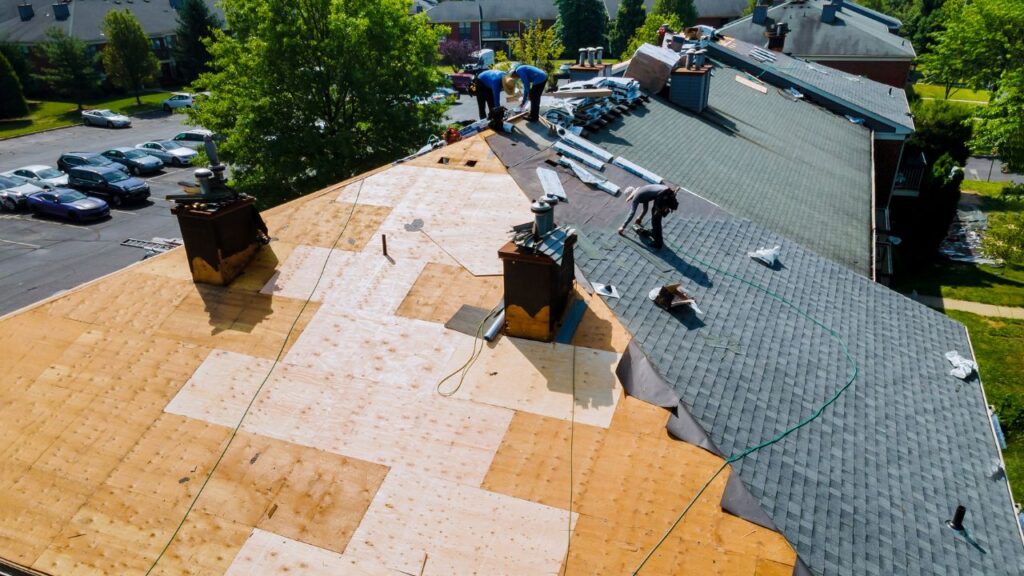
Commercial flat roof replacement is a significant investment for businesses, requiring careful consideration of various factors to determine the overall cost. This article explores the key elements influencing commercial flat roof replacement costs, providing valuable insights for property owners and managers.
When dealing with commercial flat roof replacement, the size and complexity of the roof play pivotal roles in determining the overall cost. Larger roofs or those featuring intricate designs necessitate increased quantities of materials, skilled labor, and time for the replacement process. The sheer magnitude and complexity of the roof structure significantly influence the scale of the entire project, impacting expenses across various facets of the replacement endeavor.
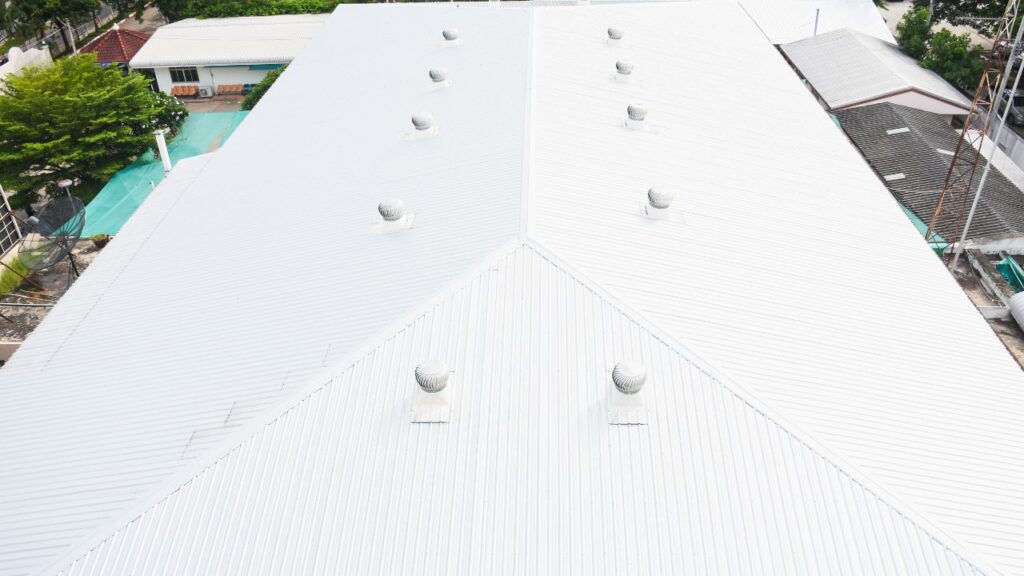
Choosing the right roofing material for a commercial flat roof replacement involves careful consideration of various factors. Here are some common roofing materials along with their key considerations:
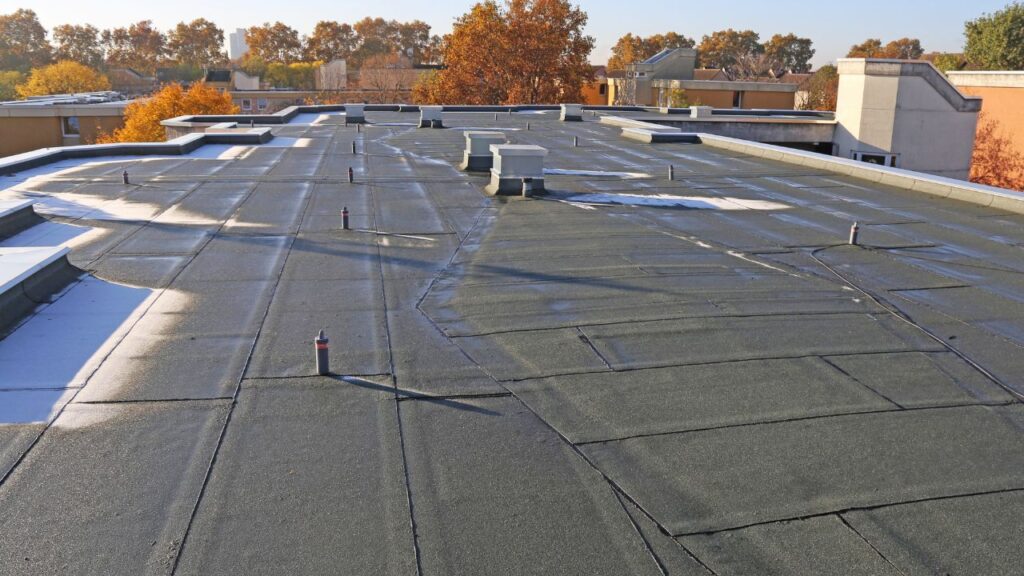
Selecting the right roofing system type is a crucial decision in commercial flat roof replacement, and each option has its unique characteristics. Here’s a brief overview of some common roofing system types:

Ensuring adequate insulation is crucial not only for energy efficiency but also for compliance with regulatory standards. Commercial spaces, especially in regions with specific climate considerations, may require additional insulation measures. These added insulation requirements contribute to increased costs during the flat roof replacement process, with the aim of enhancing the building’s energy efficiency and complying with relevant regulations.
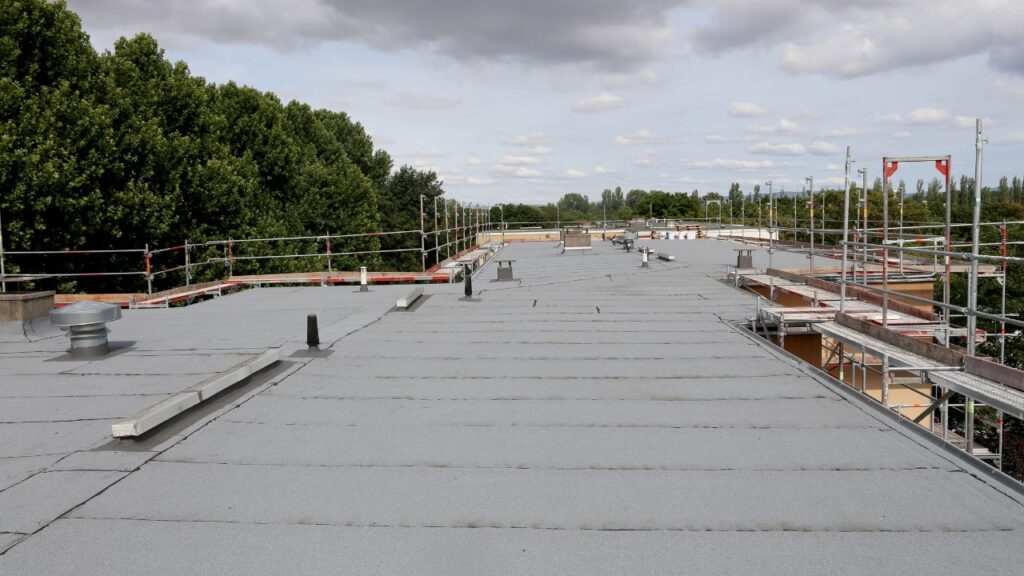
The cost associated with the removal of the existing roofing material is a significant component of commercial flat roof replacement expenses. This includes the meticulous process of taking off the old roofing material and preparing the roof deck for the installation of the new system. Proper disposal of the old material is also a crucial aspect, contributing to the overall expenses incurred during this phase of the replacement project.
Skilled labor constitutes a substantial portion of the expenses involved in commercial flat roof replacement. The expertise and efficiency of the roofing team directly impact the quality and success of the project. Labor costs can vary based on the complexity of the installation, the intricacies of the roofing system, and the overall scope of the replacement project. Investing in skilled professionals is essential to ensure the longevity and effectiveness of the new roofing system.
Accessibility to the roof and the implementation of necessary safety measures, such as scaffolding or safety equipment, contribute to overall costs. Ensuring a safe working environment for the roofing team is critical, and property owners may need to make additional investments to meet safety standards. The costs associated with roof access and safety measures are integral to the overall budget for commercial flat roof replacement.
Ready to raise the roof on your bids? Take your construction projects to new heights by inquiring about our top-notch estimating services.
Considering warranties provided by roofing material manufacturers and contractors is an essential aspect of commercial flat roof replacement. While high-quality roofing materials may entail a higher upfront cost, they often come with long-term warranties that can result in substantial savings through reduced maintenance and repair expenses over the life of the roof. Property owners must evaluate the long-term costs and benefits associated with different warranty options when making decisions about roofing materials for the replacement project.
Explore the average costs associated with commercial roof replacement based on different roofing materials:
These costs vary depending on the selected roofing material, emphasizing the importance of aligning your choice with specific needs and stylistic preferences for the commercial space.
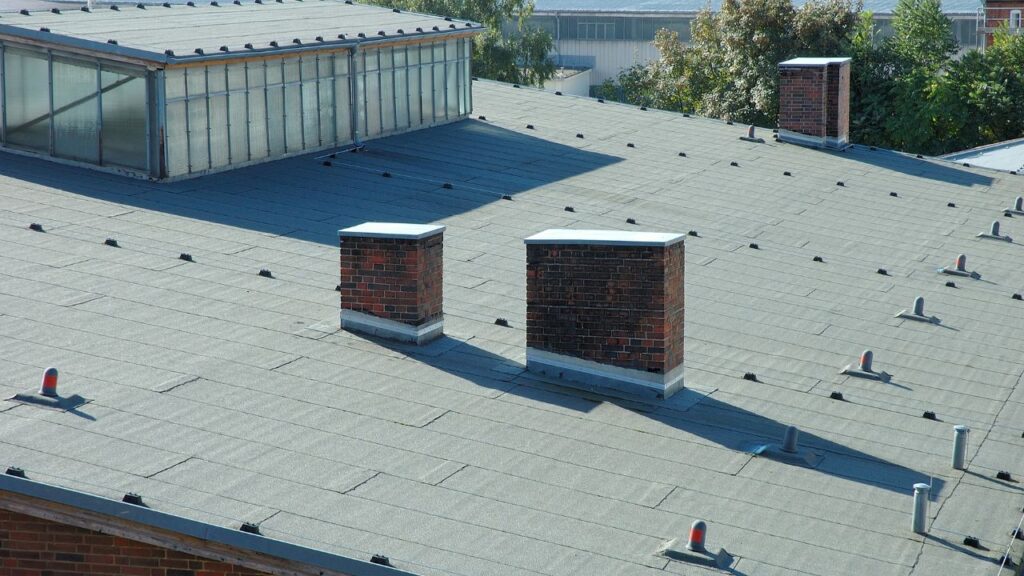
Engaging in comparative bidding for your commercial flat roof replacement project is a strategic practice that involves obtaining multiple bids from reputable roofing contractors. This approach promotes transparency in the pricing structure, allowing property owners to make informed decisions. By comparing the detailed quotes provided by different contractors, you gain a comprehensive understanding of the costs involved. This not only ensures competitive rates but also helps in identifying potential cost savings and making a more informed decision regarding the contractor who best aligns with the specific requirements of your commercial property.
Exploring energy-efficient roofing options is a forward-thinking strategy for commercial property owners seeking to reduce long-term operational costs. Opting for reflective roofing materials, cool roofs, or coatings can contribute to energy savings by minimizing heat absorption. While the upfront costs of these energy-efficient materials may be higher, the long-term operational savings, in terms of lower heating and cooling expenses, can significantly outweigh the initial investment. This approach not only enhances the insulation and energy efficiency of the commercial property but also reflects a commitment to sustainability and environmental responsibility.
Seeking professional consultation is a crucial step in ensuring the success of your commercial flat roof replacement project. By engaging with experienced roofing professionals, property owners gain access to a wealth of knowledge and expertise. These professionals can provide valuable insights into the most suitable roofing materials, design considerations, and cost-effective solutions tailored to the specific needs of the commercial property. Their expertise extends beyond material selection to encompass design intricacies and efficient project planning. This collaborative approach ensures that the roofing project is executed with precision, aligning with both aesthetic preferences and budgetary constraints.
The cost of commercial flat roof replacement is influenced by factors such as roof size, material choice, roofing system, insulation needs, labor, safety measures, and long-term considerations. Property owners must carefully weigh options like built-up roofing, single-ply membranes, metal roofing, and more, considering costs and durability.
Effective cost management involves strategies like comparative bidding for transparency, exploring energy-efficient solutions for long-term savings, and seeking professional consultation for tailored advice. While upfront costs may vary, investing in quality materials and professional guidance ensures the project’s success, minimizing maintenance expenses over time. A well-informed approach to these considerations guarantees efficient, resilient, and enduring commercial flat roof replacement outcomes.
The size and complexity of the roof significantly influence costs. Larger or intricate roofs require more materials, skilled labor, and time, affecting the overall expense of the replacement project.
Consider cost, durability, and installation requirements. Options like Built-Up Roofing (BUR), Single-Ply Membranes, Modified Bitumen, Metal Roofing, Green Roofing, and Spray Polyurethane Foam (SPF) offer varying benefits.
Different roofing systems, such as EPDM, TPO, PVC, or Modified Bitumen, have distinct installation and maintenance costs. The right choice depends on factors like installation speed, maintenance needs, and overall cost.
Adequate insulation is crucial for energy efficiency and regulatory compliance. Additional insulation measures may be required, contributing to increased costs.
Labor costs vary based on installation complexity, roofing system intricacies, and project scope. Investing in skilled professionals is essential for ensuring the new roofing system’s longevity.
Accessibility and safety measures, such as scaffolding or safety equipment, contribute to overall costs. Property owners may need to make additional investments to meet safety standards.
Considering warranties provided by manufacturers is crucial. While high-quality materials may have higher upfront costs, long-term warranties can lead to substantial savings through reduced maintenance and repair expenses.
Costs vary based on the selected material. On average, single-ply roofing ranges from $8.50 to $15.50 per square foot, Modified Bitumen from $10.50 to $17.75, Built-up roof from $15.50 to $25.25, Metal Roofing from $14.50 to $20.75, and Asphalt Shingles from $5.50 to $10.50.
Engaging in comparative bidding allows property owners to obtain multiple bids from reputable contractors, promoting transparency in pricing. It helps in making informed decisions and identifying potential cost savings.
Professional consultation provides access to expertise in material selection, design considerations, and cost-effective solutions. Collaborating with experienced roofing professionals ensures precise project execution aligned with aesthetic preferences and budget constraints.
Here I am going to share some steps to get your commercial flat roof replacement estimate report.
You can send us your plan on info@estimatorflorida.com
Before starting your project, we send you a quote for your service. That quote will have detailed information about your project. Here you will get information about the size, difficulty, complexity and bid date when determining pricing.
Our team will takeoff and estimate your project. When we deliver you’ll receive a PDF and an Excel file of your estimate. We can also offer construction lead generation services for the jobs you’d like to pursue further.



561-530-2845
info@estimatorflorida.com
Address
5245 Wiles Rd Apt 3-102 St. Pete Beach, FL 33073 United States
561-530-2845
info@estimatorflorida.com
Address
5245 Wiles Rd Apt 3-102 St. Pete Beach, FL 33073 United States
All copyright © Reserved | Designed By V Marketing Media | Disclaimer